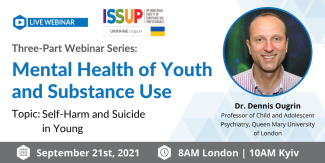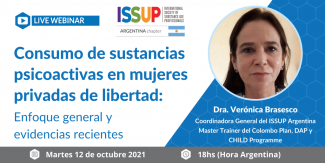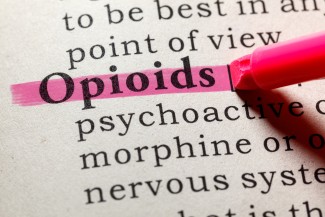The relationship between mental health disorders and substance use and integrated approaches.
Mental Health
Mental Health of Youth and Substance Use: Self-harm and Suicide in Young
ISSUP Ukraine are pleased to present the First Webinar in their Three-Part Series on 'Mental Health of Youth and Substance'. The First Webinar will centre specifically on Self-Harm and Suicide in Young.
Mental Health of Youth and Substance Use: Self-harm and Suicide in Young
ISSUP Ukraine is pleased to invite you to attend the First Webinar in their Three-Part Series on 'Mental Health of Youth and Substance'. The First Webinar will centre specifically on Self-Harm and Suicide in Young.

Policies, delivery models, and lessons learned from integrating mental health and substance abuse services into primary health care in Ethiopia.
In Ethiopia, noncommunicable diseases (NCDs) represent 18.3% of premature mortality, consume 23% of the household expenditures, and cost 1.8% of the gross domestic product. Risk factors such as alcohol, khat, and cannabis use are on the...
COVID-19 Response: Mental Health and Psychosocial Support for Community Health Workers
This online course provides an overview of how community health workers (CHWs) can support their communities by providing appropriate mental health and psychosocial support during the COVID-19 pandemic. In this course you will learn how to...

Alcohol and self-harm: A qualitative study
Executive Summary This qualitative study was commissioned by Alcohol Change UK in Wales to explore how and why alcohol and self-harm are related, and how alcohol, self-harm, and related services, are experienced and understood. Eleven...
Substance Use in Women Deprived of Liberty: A General Approach and Recent Evidence
ISSUP Argentina held a webinar presenting a general initial framework and evidence on the characterization and approach of problematic substance use in the population of women deprived of liberty. The webinar took place on Tuesday, October...
Substance Use in Women Deprived of Liberty: A General Approach and Recent Evidence
ISSUP Argentina invites you to participate in a webinar presenting a general initial framework and evidence on the characterization and approach to problematic substance use in the population of women deprived of liberty.
The webinar will take place on Tuesday, October 12, 2021 at 6:00 p.m. (Argentina time)

Latin American Journal of Mental Health and Therapeutic Communities- Call for Papers
The Latin American Journal of Mental Health and Therapeutic Communities (RELASMECT) is an initiative that gather professionals from all over Latin America, the Caribbean, Europe and the United States, focused on the creation and...
The link between reducing pain medication, overdose and mental health crisis
In response to the concerning numbers of opioid-related deaths in the US, there has been a recent focus on opioid prescribing trends, which has shown an increase in opioid tapering among patients prescribed long-term opioid therapy. However...

